 W
WAleksanteri Aava, born Aleksanteri (Santeri) Kuparinen, was a Finnish poet and smallholder.
 W
WKarl August Engelbrekt Ahlqvist, who wrote as A. Oksanen, was a Finnish professor, poet, scholar of the Finno-Ugric languages, author, and literary critic.
 W
WRisto Ahti is a Finnish writer and recipient of the Eino Leino Prize in 1994.
 W
WTuomas Anhava was a Finnish writer and recipient of the Eino Leino Prize in 1989.
 W
WKari Aronpuro is a Finnish poet. He worked in the library industry for over 40 years. He worked as a librarian at the University of Tampere course library from 1964 to 1971, Rääkkylän municipal library in 1972, Kemin Syväkangas library from 1972 to 1981 and the Tampere Lamminpää library from 1981 to 2003.
 W
WPaavo Emil Cajander was a Finnish poet and translator.
 W
WArvid Oskar Gustaf Genetz was a Finnish politician, poet and linguist. He wrote under the pseudonym Arvi Jännes. His best known poems are "Herää Suomi”, ”Karjala” and ”Väinölän lapset”. He was a member of the Senate of Finland from 1901–1905.
 W
WPaavo Juhani Haavikko was a Finnish poet, playwright, essayist and publisher, considered one of the country's most outstanding writers. He published more than 70 works, and his poems have been translated to 12 languages.
 W
WMartti Henrikki Haavio was a Finnish poet, folklorist and mythologist, writing poetry under the pen name P. Mustapää. He was born on 22 January 1899 in Temmes, and died 4 February 1973 in Helsinki. He was also a professor of folklore and an influential researcher of Finnish mythology. In 1960, Haavio married Aale Tynni, after his first wife died in 1951 of cancer. His daughter, Elina Haavio-Mannila, is a social scientist. During Haavio's early career, he was a member of the Tulenkantajat literature club.
 W
WAaro Hellaakoski was a Finnish poet whose work includes some of the earliest examples of modernism in Finnish literature.
 W
WPentti Vihtori Holappa was a Finnish poet, writer and politician. Born in Ylikiiminki to a relatively poor family of modest means, he held numerous jobs before becoming a political journalist and eventually obtaining a government post. He was self-educated, but produced around fifteen volumes of poetry, as well as several novels and essays. He also worked as a translator; among the poets and authors whose work he translated into Finnish are Charles Baudelaire, Pierre Reverdy, and J. M. G. Le Clézio. He received the Finlandia Prize in 1998 for his novel Ystävän muotokuva: Portrait of a Friend.
 W
WAnselm Paul Alexis Hollo was a Finnish poet and translator. He lived in the United States from 1967 until his death in January 2013.
 W
WKari Hotakainen is a Finnish writer. Hotakainen started his writing career as a reporter in Pori. In 1986, he moved to Helsinki. He became a full-time writer in 1996. He has two children with his wife, sound technician Tarja Laaksonen, whom he married in 1983. He has also worked as a copywriter and as a columnist for the Helsingin Sanomat.
 W
WMarkku Into was a Finnish poet and one of the main members in Finnish 1960s underground movement of Turku. Markku Into has written collections of poetry, prose and plays. He has also translated into Finnish such American Beat generation writers as Allen Ginsberg, Lawrence Ferlinghetti and Gregory Corso; also Charles Bukowski. He wrote lyrics for the band Suomen Talvisota 1939-1940. His literary debut was Tuonela Rock of 1971. Markku Into has also received the Eino Leino Prize in 2001.
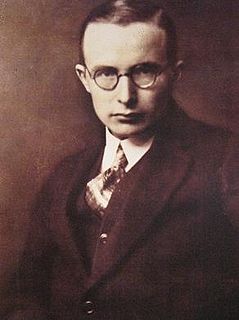 W
WUuno Kailas, born Frans Uno Salonen was a Finnish poet, author, and translator. Together with Kaarlo Sarkia, Kailas was the most prominent Finnish poet of the 1930s.
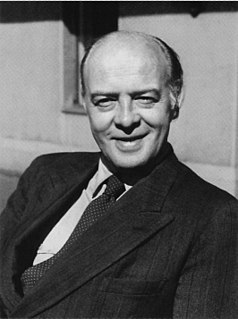 W
WViljo Lennart Kajava was a Finnish poet and writer. He was born in Tampere, and his first collections of poems were released in 1935. During his 50-year career he published nearly 40 books, most of them poems. Kavaja's Tampereen runot has become a symbol of the pacifistic point of view of the Finnish Civil War.
 W
WIlmari Kianto, also known as Ilmari Calamnius and Ilmari Iki-Kianto, was a Finnish author. He was born in Pulkkila, Northern Ostrobothnia, and is best known for his books Punainen viiva and Ryysyrannan Jooseppi. In his books, he describes people and living at Suomussalmi municipality in Kainuu region. He died in Helsinki, aged 95. Composer Jean Sibelius used Kianto's poem 'Lastu lainehilla' (Driftwood) as the lyric for the last of his Seven Songs, Op.17 (1902).
 W
WAntti Koivumäki was a Finnish poet and musician.
 W
WVeikko Antero Koskenniemi was a Finnish poet born in Oulu.
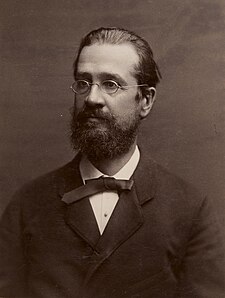 W
WJulius Leopold Fredrik Krohn was a Finnish folk poetry researcher, professor of Finnish literature, poet, hymn writer, translator and journalist. He was born in Viipuri and was of Baltic German origin. Krohn worked as a lecturer on Finnish language in Helsinki University from the year 1875 and as a supernumerary professor from 1885. He was one of the most notable researchers into Finnish folk poetry in the 19th century. His native language was German.
 W
WKarl Gustaf Larson, better known as Larin-Kyösti, was a Finnish poet. Many of his poems have been set to music by Yrjö Kilpinen or by Jean Sibelius.
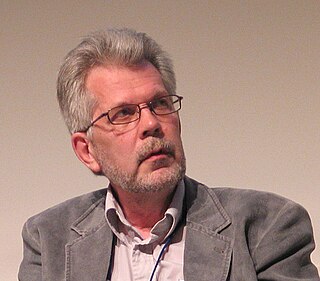 W
WLeevi Lehto was a Finnish poet, translator, and programmer.
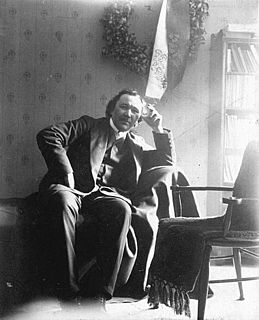 W
WEino Leino was a Finnish poet and journalist who is considered one of the pioneers of Finnish poetry. His poems combine modern and Finnish folk elements. Much of his work is in the style of the Kalevala and folk songs in general. Nature, love, and despair are frequent themes in Leino's work. He is beloved and widely read in Finland today.
 W
WJuhani Juice Leskinen, better known as just Juice Leskinen, was one of the most prominent Finnish singer-songwriters of the late 20th century. From the early 1970s onward he released nearly 30 full-length albums, as well as writing song lyrics for dozens of Finnish artists. Several of Leskinen's songs have reached classic status in Finnish popular music, e.g., "Viidestoista yö", "Kaksoiselämää" and "Syksyn sävel". His early records are considered staples of the so-called Manserock movement of the mid-'70s. In addition to Leskinen's musical work, he extended his focus to poetry and playwriting with nine collections of verse and seven plays published.
 W
WHannu Mäkelä is an author of more than 100 books in Finnish: novels, collections of short stories, edited anthologies and children's books. Hannu Mäkelä is known for his books for children in many countries around the world, especially the popular "Mr. Hoo" series.
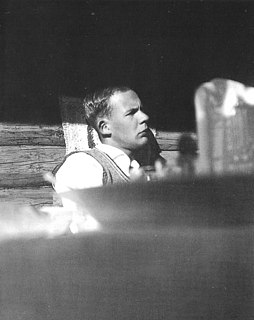 W
WErkki Mauno Gustaf Manninen, born 26 June 1915 in Helsinki, Grand Duchy of Finland, died 14 September 1969 in Kangasniemi, Finland, was a Finnish poet, painter and theatre director. He was the son of poet Otto Manninen and writer Anni Swan. Manninen is best known as the founder of Intimiteatteri, which was one of the leading theatres in Helsinki from 1949 to 1987.
 W
WVeijo Väinö Valvo Meri was a Finnish writer. Much of his work focuses on war and its absurdity. The work is anti-war and has dark humor.
 W
WJooseppi Mustakallio, originally Josef Schwartzberg, was a Finnish minister and the fourth mission director of the Finnish Missionary Society, after Akseli Hirn. He was also a poet and a lyricist. His best known poem is called “Evening Song”.
 W
WArto Tapio Paasilinna was a Finnish writer, being a former journalist turned comic novelist. One of Finland's most successful novelists, he won a broad readership outside of Finland in a way few other Finnish authors have before. Translated into 27 languages, over seven million copies of his books have been sold worldwide, and he has been claimed as "instrumental in generating the current level of interest in books from Finland".
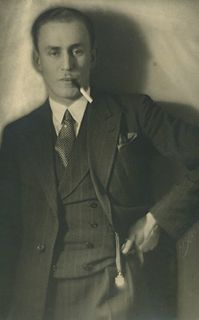 W
WOlavi Paavolainen was a Finnish writer, essayist and poet. He was one of the prominent figures of the literary group Tulenkantajat, and one of the most influential Finnish writers of the inter-war period.
 W
WAntti Puhakka was a Finnish national romantic poet from Kontiolahti in Finnish Karelia. He was known for using Kalevala meter in his poems.
 W
WRisto Olavi Rasa is a Finnish poet. He writes short nature poems. He is a librarian in Somero.
 W
WKaj Tapio Rautavaara was a Finnish singer (bass-baritone), athlete, and film actor.
 W
WPentti Saarikoski was one of the most important poets in the literary scene of Finland during the 1960s and 1970s. His body of work comprises poetry and translations, among them such classics as Homer's Odyssey and James Joyce's Ulysses.
 W
WKaarlo Sarkia was a Finnish poet and translator who was influenced by romantic poetry. His poems include motifs like childhood memories, love, landscapes and dreamworld, and in his last collection of poetry also his personal death and mankind's sufferings. Together with Uuno Kailas, Sarkia was the most prominent Finnish poet of the 1930s. As Kailas, his poetry also had homosexual themes.
 W
WJuhani Siljo was a Finnish poet and translator.
 W
WAxel Gabriel Sjöström was a Finnish educator and poet.
 W
WTommy Tabermann was a Finnish contemporary poet and politician, radio personality and journalist. Since 1998 and until 2006 he was known to Finnish audiences for his witty role as team captain in the weekly Saturday night television show Uutisvuoto, the Finnish version of Have I Got News For You, opposite the bestselling author Jari Tervo. Tervo recently characterised his popularity with the following anecdote: "When he was sixty, nine out of ten persons in an elevator at the Stockmann department store recognised him. The tenth person was Japanese."
 W
WJarkko Olavi Tontti is a Finnish novelist, poet, essayist and lawyer. He is member of PEN International Executive Board and former president of Finnish PEN.
 W
WZachris Topelius was a Swedish-speaking Finnish author, poet, journalist, historian, and rector of the University of Helsinki who wrote novels related to Finnish history in Swedish.
 W
WKaarlo Uskela was a Finnish satiric author, poet and anarchist. Uskela is best known of his 1921 anthology Pillastunut runohepo which was banned in 1933, eleven years after Uskela's death.
 W
WNils-Aslak Valkeapää, known as Áillohaš in the Northern Sami language, was a Finnish Sami writer, musician and artist. He was born in Enontekiö in Lapland province, Finland. He lived most of his life in Käsivarsi, close to the border of Sweden, and also in Skibotn in Norway. Valkeapää was born to a family of traditional reindeer herders, but was trained as a school teacher. His most well-known international debut was when he performed at the opening ceremony of the 1994 Winter Olympic Games in Lillehammer, Norway. He received the Nordic Council Literature Prize for The Sun, My Father in 1991.
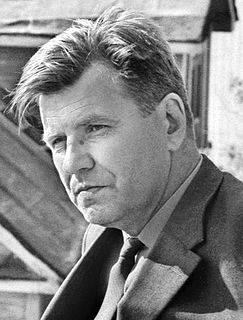 W
WLauri Arvi Viita was a poet hailing from the Pispala district of Tampere, Finland.
 W
WJosef Julius Wecksell was a Finnish poet and playwright.
 W
WGeorg Sigurd Wettenhovi-Aspa was a Finnish multiartist: painter, sculptor, writer, and a pseudo-linguist. He is best known for his fantastic theories about the past of the Finnish people, whom he believed to have descended from Ancient Egypt.
 W
WAki Ville Yrjänä, better known by the stage name, A. W. Yrjänä, is a poet and the singer, bassist, and primary songwriter of the Finnish rock band CMX. In addition to his musical work, he has published five collections of poems.